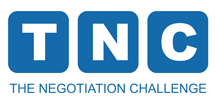Influence in negotiation refers to the ability of a negotiator to shape or impact the decisions, attitudes, and behaviors of the other party during the negotiation process. Effective negotiators employ various tactics and strategies to exert influence and persuade the other party to move towards their desired outcomes.
Key aspects of influence in negotiation include:
- Persuasion: Influential negotiators use persuasive communication techniques to present their arguments, proposals, and concessions in a compelling manner. They seek to appeal to the other party’s interests and values.
- Building Credibility: Establishing credibility and trustworthiness is vital for gaining influence in negotiation. Credible negotiators are seen as more reliable and are more likely to be taken seriously.
- Leveraging Information: Skillful negotiators use information strategically to influence the other party’s perception of the situation and their own position. This may involve selectively sharing information or presenting data in a convincing way.
- Understanding Motivations: Influential negotiators make an effort to understand the underlying motivations and interests of the other party. By identifying their needs and priorities, negotiators can tailor their proposals to align with the other party’s interests.
- Creating Win-Win Solutions: By focusing on collaborative problem-solving and finding solutions that benefit both parties, negotiators can exert influence and build a sense of cooperation.
- Flexibility and Adaptability: Being open to adapting and modifying positions based on new information or changing circumstances can enhance negotiators’ influence.
- Social Skills: Effective negotiation often requires strong social skills, such as active listening, empathy, and rapport-building. These skills help negotiators connect with the other party and foster a positive negotiation climate.
- Using Power and Leverage: In some cases, negotiators may leverage their power or available alternatives to influence the other party’s decisions. However, using power responsibly and ethically is essential to maintain a constructive negotiation process.
- Negotiation Style: The chosen negotiation style can also impact the level of influence. Collaborative and accommodating styles often create a more positive environment for influence compared to competitive or aggressive styles.
- Framing and Perception: How negotiators frame the negotiation, present issues, and portray proposals can significantly influence how the other party perceives the situation and potential solutions.
Influence in negotiation is not about manipulating or forcing the other party into an agreement that is unfair or unfavorable. Instead, it involves creating an environment of trust, respect, and mutual understanding, where both parties are willing to consider each other’s interests and work towards a mutually beneficial outcome. Skillful use of influence can lead to more successful negotiations and foster stronger relationships between negotiators.
